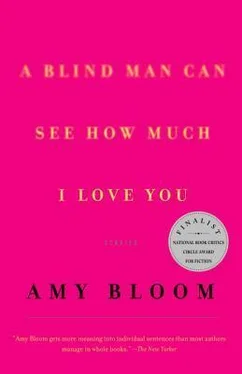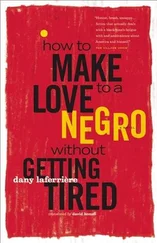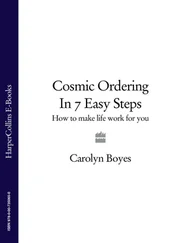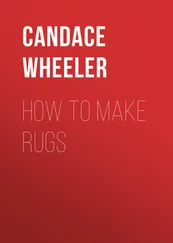“Jesus,” he said. “It’s not like I have any balance anyway.” Which is true. He has Parkinson’s, and no sensible group of people would have him painting their synagogue if it weren’t for the fact that he’s been painting houses for twenty-five years and is the synagogue president’s husband. I volunteered to help because I’m in love with Jack and because I like to paint. I lay down on the dropcloth and unbuttoned my shirt.
“Want to fool around?”
“Always,” he said. There has never been a sweeter, kinder man. “But not right now. I’m pretty tired already.”
“You rest. I’ll paint.”
I took off my shirt and bra and painted for Jack. I strolled up and down with the extra-long paint roller. When the cracks in the ceiling lost their brown, ropy menace, I took the regular roller and did the walls. I poured Jack tea from my thermos and I touched my nipples with the windowsill brush.
He sat up against the bima, sipping sweet milky tea and smiling. His face so often shows only a tender, masked expressiveness, I covet the tiny rips and leaks of affect in the corner of his mouth, in the middle of his forehead. His hand shook. He shakes. Mostly at rest. Mostly when he is making an effort to relax. And sometimes, after we’ve made love, which he does in a wonderfully unremarkable, athletic way, his whole right side trembles and his arm flutters wildly, as if we’ve set it free.
I told a friend about me and Jack painting the synagogue for Rosh Hashanah, and this woman, who uses riding crops for fun with strangers and tells me fondly about her husband’s rubber fetish, got wide-eyed as a frightened child and said, “In shul? You made love in shul? You must have really wanted to shock God.” I said, “No, I didn’t want to shock God”—what would have shocked God? two more naked people, trying to wrestle time to a halt? — “it was just where we were.” And if someone had offered me the trade, I would have rolled myself in paint and done dripping off-white cartwheels through the entire congregation for more time with Jack.
Rosh Hashanah and Yom Kippur are my favorite holidays. You don’t have to entertain anyone or feed anyone or buy things for anyone. You can combine skipping waves of kindly small talk with deep isolation, and no one is offended. I get a dozen invitations to eat roast chicken the night before, and a dozen more invitations to break the fast, including the one to Jack and Naomi’s house. I think her name was Nancy until she went to Jerusalem in eleventh grade and came back the way they did, lean and tan and religious and Naomi. Jack thinks she’s very smart. He went to Catholic school and dropped out of Fordham to run his father’s construction business. Mouthy Jewish girls who can talk through their tears and argue straight through yours, myopic girls who read for pleasure — for Jack, this is real intelligence. And Naomi Sapirstein Malone totes him around, her big converted prize, the map of Ireland on his face and blue eyes like Donegal Bay, nothing like the brown eyes of the other men, however nice their brown eyes are, not even like our occasional blue-eyed men, Vilna blue, the-Cossack-came-by eyes, my mother says.
My mother still couldn’t believe I’d even joined a synagogue. Two bar mitzvahs when I was thirteen set off an aversion to Jewish boys that I have only overcome in the last ten years. And if I must go, why not go someplace nice, with proper stained glass and a hundred brass plaques and floral arrangements the size and weight of totem poles? There, you might be safe. There, you might be mistaken for people of position, people whom it would be a bad idea to harm. When my brother Louis had his third nervous breakdown and they peeled him out of his apartment and put him in a ward with double sets of locking doors and two-way mirrors, the doctors tried to tell me and my mother that his paranoia and his anxious loneliness and his general relentless misery were not uncommon in children of Holocaust survivors. My mother was not impressed and closed her eyes when Lou’s psychiatrist spoke.
We went out for tuna fish sandwiches and I tried to tell her again, as if it were only that she didn’t understand their zippy American medical jargon. I counted Lou’s symptoms on my fingers. I said that many young men and women whose families had survived the Holocaust had these very symptoms. I don’t know what I thought. That she would feel better? Worse?
“Well, yes, of course, they suffer. Those poor wretches,” she said, in her most Schönbrunn tones.
“Like us, Meme. Like us. Daddy in Buchenwald. Grandpa Hoffmann in Ebensee. Everyone fleeing for their lives, with nothing. The doctor meant us.”
My mother waved her hand and ate her sandwich.
“Please. We’re very lucky. We’re fine. Louis has your Uncle Morti’s nervous stomach, that’s all.”
Louis recovered from his nervous stomach with enough Haldol to fell an ox, and when he got obese and shaved only on Sundays and paced my mother’s halls day and night in backless bedroom slippers, this was Uncle Morti’s legacy as well.
Your might, O Lord, is boundless.
Your lovingkindness sustains the living.
Your great mercies give life to the dead.
You support the falling, heal the ailing, free the fettered.
How can you say those prayers when your heart’s not in them, Jack said. My heart is in them, I said. I don’t think belief is required. I put my hand out to adjust his yarmulke, to feel him. I never saw anything so sweetly ridiculous as his long pink ears anchoring that blue satin kippah to his head.
You could wear a really dashing fedora, I said. You have that sexy Gary Cooper hat. Wear that. God won’t mind. God, I said, would prefer it.
Naomi’s break fast was just what it was supposed to be: platters of bagels, three different cream cheeses in nice crystal bowls, roasted vegetables, kugels, and interesting cold salads. There was enough food that one wouldn’t be ashamed in front of Jews, not so much that one would have to worry about the laughter of spying goyim.
I helped Jack in the kitchen while Naomi circulated. Sometimes I wanted to say to her, How can you stand this? You’re not an idiot. Doesn’t it make you feel just a little ridiculous to have gone to the trouble of leaping from Hadassah president to synagogue president in one generation and find yourself still in your mother’s clothes and still in your mother’s makeup, and still in your mother’s psyche, for Christ’s sake? I didn’t say anything. It was not in my interest to alarm or annoy Naomi. I admired her publicly, I defended her from the men who thought she was too shrill and from the women who thought their husbands would have been better presidents and therefore better armatures for them as presidents’ wives, seated next to the major donors, clearly above the balabostas at God’s big dinner party. We’d had forty years of men presidents, blameless souls for the most part, only the occasional embezzler or playboy or sociopath. Naomi was no worse, and she conveyed to the world that we were a forward-looking, progressive congregation. I don’t know how forward-looking Jews can actually be, wrestling with God’s messenger, dissolving Lot’s wife, wading through six hundred and thirteen rules for better living, our one-hundred-and-twenty-year-old mothers laughing at their sudden fertility, and our collective father Abraham willing to sacrifice his darling boy to appease a faceless bully’s voice in his ear.
Jack and I were in charge of the linguine with tomato-cream sauce, and we kept it coming. He stuck his yarmulke in his back pocket and wrapped Naomi’s “Kiss Me, I’m Kosher!” apron around me. On the radio, an unctuous reporter from NPR announced that people with Parkinson’s were having a convention, that there was an ACT-UP for Parkinson’s sufferers (“I’d like to see that, wouldn’t you?” Jack said). The reporter described the reasonably healthy people, the leaders, naturally enough, angry and trembling but still living as themselves, just with a little less dopamine, and he interviewed the damned, one worse than the next, a middle-aged classics professor, no longer teaching or writing, his limbs flying around him in mad tantric designs; a young woman of twenty-five, already stuck in a wheelchair, already sipping from the straw her mother held to her lips as they roamed the halls of the Hilton looking for the sympathetic ear that would lead to the money that would lead to the research and the cure before she curled up like an infant and drowned in the sea of her own lungs.
Читать дальше












